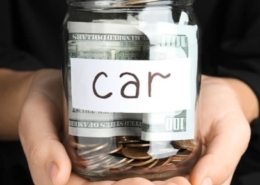25 Little-Known Facts About Car Dealerships
Discover surprising and lesser-known facts about car dealerships.
Car dealerships have long been a staple in the automotive industry, serving as the primary point of contact between car manufacturers and consumers.
While many people are familiar with a dealership’s essential functions, several lesser-known facts about these establishments might surprise you.
Let’s delve into the world of car dealerships, exploring hidden strategies, behind-the-scenes operations, and other intriguing aspects that shed light on this fascinating industry.
Table of Contents
- Little-known facts about car dealerships
- Car Pricing
- Four-square
- Vehicle financing
- No-haggle pricing
- Auto warranties
- Dealer holdbacks
- Market conditions
- Customer reviews
- Vehicle presentation
- Trade-ins
- Vehicle auctions
- Test drives
- Demographics
- Salespeople
- Online sales
- Accessories
- History reports
- Upselling
- Limited time offers
- Dealer incentives
- Seasonal promotions
- Vehicle inspections
- The role of depreciation
- Power of patience
- Ethics of car sales
- How to get the best deal on a new car
- Frequently asked questions
- In conclusion
25 Little-Known Facts About Car Dealerships
Explore 25 little-known facts about car dealerships below, from pricing strategies to online sales, and gain valuable insights to navigate the car-buying process and secure the best deals.
1. The Art of Car Pricing
Car pricing is often a subject of confusion and negotiation for buyers. It may come as a surprise that dealerships follow a well-thought-out pricing strategy that aims to increase profits for the dealership.
The sticker price on the car’s window is known as the Manufacturer’s Suggested Retail Price (MSRP), but this is rarely the final price.
Dealerships commonly employ tactics like adding dealership fees to increase the overall cost.
Using an online car buying service to request free dealer price quotes from several dealerships is the best way to guarantee you pay the lowest price in your area.
Understanding these strategies can empower buyers to negotiate better deals.
2. The “Four-Square” Technique
You may encounter the “four-square” technique when negotiating with a car dealership.
This approach involves breaking the negotiation into four parts: trade-in value, purchase price, down payment, and monthly payment.
By isolating these components, dealerships can manipulate the numbers to their advantage.
For instance, they may offer a higher trade-in value but raise the purchase price, resulting in a less favorable deal.
Being aware of this technique can help buyers navigate negotiations more effectively.
3. The Importance of Vehicle Financing
Financing is crucial in car buying, and dealerships capitalize on this to maximize profits.
While obtaining financing directly through the dealership is convenient, they often work with lending institutions to secure loans at higher interest rates.
By doing so, dealerships receive a commission from the financial institution, the dealer reserve.
Buyers should explore alternative financing options and get a preapproved auto loan beforehand to get the best deal possible.
4. The Secret Behind “No-Haggle” Pricing
Some dealerships adopt a “no-haggle” pricing policy, which promises to eliminate the need for negotiation.
However, it’s essential to recognize that this pricing strategy is not entirely altruistic.
While it saves customers from the hassle of negotiating, the dealership often factors in a higher profit margin when setting the prices.
Therefore, it’s essential to research the car’s market value to ensure you’re not paying more than necessary.
5. The Prevalence of Extended Warranties
When purchasing a new car, dealerships frequently offer extended auto warranties to provide added peace of mind.
However, these warranties can be a significant source of profit for dealerships. The cost of these warranties often includes a substantial markup, allowing dealerships to earn a considerable profit.
Buyers should carefully consider the terms and coverage before deciding and get a couple of free auto warranty quotes online to compare shop prices and level the playing field before heading to the dealership.
6. The World of Dealer Holdbacks
Dealer holdbacks are a little-known practice that manufacturers use to incentivize dealerships.
It involves the manufacturer refunding a percentage (0-3%) of the car’s price to the dealership after it sells.
This system helps dealerships offset overhead costs and encourages them to sell more vehicles.
While dealer holdbacks are not usually negotiable and may not directly benefit consumers, understanding their existence can shed light on the dynamics between manufacturers and dealerships.
7. The Role of Market Conditions
Car dealerships are sensitive to market conditions and adjust their strategies accordingly.
Supply and demand, seasonality, and economic trends influence the dealership’s approach to pricing and sales.
For example, during periods of high demand, dealerships may be less willing to negotiate on price.
Being aware of these market dynamics can assist buyers in timing their purchases for optimal deals.
8. The Influence of Customer Reviews
Customer reviews have become increasingly important in today’s digital age.
Car dealerships recognize the impact of online reviews and strive to maintain a positive reputation.
Some dealerships even incentivize customers to leave positive reviews by offering rewards or discounts.
Before visiting a dealership, checking online reviews can provide valuable insights into the dealership’s reputation and customer experience.
9. The Art of Vehicle Presentation
The visual appeal of a car can significantly impact its marketability.
Dealerships invest considerable resources in detailing and presentation to make their vehicles more enticing to potential buyers.
From professional cleaning to minor cosmetic repairs, these enhancements aim to create a positive first impression.
However, buyers must look beyond the surface and conduct thorough inspections to ensure the vehicle’s overall condition meets their expectations.
10. The Inner Workings of Trade-Ins
When trading in a vehicle at a dealership, several key factors must be considered.
Dealerships typically aim to pay as little as possible for trade-ins to maximize profits.
Sellers must research the market value of their vehicle and negotiate accordingly.
Factors such as the demand for the specific make and model, the vehicle’s condition, and the dealership’s current inventory can influence the trade-in offer.
11. The Secrets of Vehicle Auctions
Car dealerships often acquire vehicles through auctions, which are integral to their inventory sourcing.
These auctions provide dealerships access to various vehicles, including trade-ins, lease returns, and even salvaged cars.
However, not all vehicles at auctions are thoroughly inspected or in pristine condition.
Buyers should exercise caution when purchasing cars from dealerships that rely heavily on auctions for their inventory.
12. The Importance of Test Drives
Test drives are vital in car buying, allowing buyers to assess the vehicle’s performance and overall feel.
However, dealerships may influence the test drive experience to highlight the car’s positive aspects and downplay any potential issues.
Buyers should take their time during test drives, carefully examining the vehicle and testing its various features.
Testing the car under different driving conditions is also advisable to ensure it meets their requirements.
13. The Impact of Demographics
Car dealerships often tailor their marketing strategies based on the demographics of their target audience.
Factors such as age, income level, and geographical location can influence the types of vehicles and promotional offers a dealership focuses on.
By understanding the dealership’s target market, buyers can better assess the suitability of their offerings and negotiate accordingly.
14. Not all Car Salespeople are Unethical
One lesser-known fact about car salespeople is that they often work on a commission-based salary structure, where their earnings are directly tied to the number of vehicles they sell and the profit made on each vehicle.
This incentivizes salespeople to employ various tactics to close deals and upsell customers on additional features, warranties, or financing options.
The pressure to meet sales targets and earn higher commissions can sometimes lead to aggressive sales tactics, highlighting buyers’ importance in staying informed, confident, and assertive during car-buying.
15. The Evolution of Online Sales
The rise of the internet has transformed the way car dealerships operate.
Online car buying platforms enable customers to browse inventory, compare prices, and even complete purchasing without visiting a physical dealership.
However, it’s essential to exercise caution when engaging in online car buying.
Researching the dealership’s reputation, verifying the vehicle’s condition, and understanding the terms of the sale are crucial steps to ensure a smooth and secure transaction.
16. The Hidden Costs of Accessories
Accessories can significantly enhance a car’s appearance and functionality.
However, buyers should be aware that dealerships often mark up the prices of these accessories to increase profits.
Many dealerships will advertise a vehicle at a meager price and then install unadvertised high-priced dealer-added options to a vehicle to make up for the lost profit.
It is advisable to research the fair market value of accessories and explore alternative options, such as purchasing them directly from manufacturers or reputable aftermarket retailers.
By doing so, buyers can avoid unnecessary markups and potentially save money.
17. The Role of Vehicle History Reports
Vehicle history reports provide valuable information about a car’s past, including accidents, repairs, and ownership history.
Dealerships often obtain these reports to assess a vehicle’s condition and value.
However, buyers must conduct due diligence and obtain independent vehicle history reports.
This ensures that the information provided by the dealership is accurate and complete.
18. The Tactics of Upselling
Upselling is a common practice in car dealerships, where salespeople attempt to convince buyers to purchase additional features or upgrades.
While some upsells may benefit the buyer, others are designed to increase the dealership’s profits.
It’s crucial for buyers to carefully evaluate the value and necessity of these additional options and make informed decisions based on their needs and budget.
19. The Truth About “Limited-Time Offers”
Dealerships often promote limited-time offers to create a sense of urgency and drive sales.
However, it’s essential to approach these offers with skepticism.
Some dealers may use this tactic in their dealership advertising to pressure buyers into making quick decisions without thoroughly evaluating the terms and conditions.
Car buyers should take their time, carefully review the offer, and ensure it aligns with their needs and financial capabilities.
20. The Complex World of Dealer Incentives
Manufacturer incentives play a significant role in shaping dealership operations.
These incentives are offered to dealerships by car manufacturers and can include bonuses, rebates, and special financing rates.
However, the details of these incentives are often complex and can vary between manufacturers.
Buyers should know these incentives and inquire about any offers that could lower the purchase price or financing costs.
21. The Impact of Seasonal Promotions
Car dealerships frequently introduce seasonal promotions and sales events to attract customers.
These promotions are often tied to specific holidays or seasons and may offer discounts, exceptional financing rates, or other incentives.
Consumers need to understand the dynamics of these promotions and determine if they align with their purchasing timeline.
Additionally, researching historical trends and the best times to buy a car can provide insights into the most opportune times to secure the best deals.
22. The Importance of Vehicle Inspections
Before finalizing a car purchase, it’s crucial to conduct a thorough inspection to ensure the vehicle’s condition meets expectations.
While dealerships often perform inspections, buyers should enlist the services of an independent mechanic.
This provides an unbiased assessment of the car’s mechanical and structural integrity, helping buyers make informed decisions and potentially avoid costly repairs.
23. The Role of Vehicle Depreciation
One little-known fact about car dealerships is their awareness of vehicle depreciation.
Dealerships understand that cars depreciate over time, and they consider this when determining pricing and trade-in offers.
Buyers should also consider depreciation when purchasing, as specific makes and models may retain their value better than others.
This knowledge can help buyers make more informed decisions and save money in the long run.
24. The Power of Patience
Patience is a virtue when it comes to car shopping.
Dealerships often rely on impulsive buyers eager to drive away in a new vehicle.
By maintaining patience and thoroughly researching options, buyers can gain a better understanding of the market, negotiate more effectively, and secure better deals.
Taking the time to explore multiple dealerships and compare prices can potentially save thousands of dollars.
25. The Ethics of Car Sales
While most car dealerships operate ethically, it’s essential to acknowledge that unethical practices exist within the industry.
Buyers should be cautious of deceptive tactics, such as undisclosed damages, inaccurate vehicle descriptions, or false promises.
Conducting due diligence, carefully reading contracts, and trusting reputable dealerships are crucial to ensuring a fair and transparent car-buying experience.
How to Get the Best Deal on a New Car in Your Local Area
To get the best deal on a new vehicle, consider the following strategies:
- Research New Car Prices: Familiarize yourself with new car price terms and the dealer invoice price, representing the amount dealers pay for the vehicle. With this knowledge, you’ll be empowered during negotiations, confidently navigating the car-buying process and securing a fair deal that aligns with your needs and budget.
- Determine Your Budget and Money Down: Set a budget and determine how much you can afford for a down payment. A clear understanding of your budget in advance allows you to stay within your financial limits and make informed decisions.
- Calculate a Fair Profit Offer: Aim to calculate a fair profit offer for the dealer. Consider a reasonable profit margin for the dealership while ensuring the overall price aligns with the factory invoice price and market value.
- Utilize Car Buying Tools: Take advantage of various online car-buying tools. These tools give you valuable insights into current market prices, available rebates, and pricing trends, equipping you with the knowledge to make informed decisions and negotiate effectively for the best possible deal.
- Get Free New Car Quotes: Obtain multiple free new car quotes from different dealerships. Request quotes online or directly contact dealers to compare prices and incentives offered. This allows you to find the most competitive offers and have dealerships compete for your business.
- Negotiate with Confidence: Approach negotiations confidently, with knowledge about the factory invoice price, prevailing market trends, and competing offers. Be prepared to skillfully negotiate the overall price, additional features, or financing terms to ensure you secure the best possible deal for your car purchase.
By employing these strategies, you can navigate the car buying process more effectively, ensuring you get the best possible deal on your new car.
Remember to stay within your budget, consider the factory invoice price, and use available resources.
FAQs: Answering Your Questions
Are car dealership prices negotiable?
Yes, car dealership prices are often negotiable. Dealerships commonly build profit margins into their initial prices, allowing room for negotiation. Conducting research, comparing prices from different dealerships, and being prepared to walk away from a deal can significantly increase the chances of securing a favorable price.
Can I trust the mileage displayed on a used car at a dealership?
While dealerships strive to provide accurate information, it’s crucial to verify the mileage of a used car independently. Requesting maintenance records, cross-checking the mileage with vehicle history reports, and having the vehicle inspected by a trusted mechanic can help ensure the mileage is accurate and reliable.
Should I finance through a dealership or seek external financing?
While dealerships offer financing options, exploring external financing is also advisable. Buyers can compare interest rates and terms by obtaining pre-approved financing from a bank or credit union to ensure they secure the most favorable loan. This gives buyers more negotiating power when discussing financing options at the dealership.
What should I do if I suspect a car dealership engaged in fraudulent practices?
If you believe a car dealership has engaged in fraudulent practices, gathering evidence to support your claim is essential. Document any misleading information, false promises, or misrepresentations made by the dealership. Contact your local consumer protection agency or seek legal advice to understand your rights and explore potential remedies.
Can I return a car after purchasing it from a dealership?
In most cases, car purchases from dealerships are considered final and non-returnable. However, some dealerships may offer a limited return policy or a satisfaction guarantee within a specified timeframe. Reviewing the dealership’s return policy and any associated terms and conditions before finalizing the purchase is crucial.
Are car dealership service departments more expensive than independent mechanics?
Car dealership service departments typically charge higher labor rates compared to independent mechanics. However, dealership service departments often have specialized knowledge and access to manufacturer-specific tools and parts and may offer extended warranties on repairs. Buyers should weigh the benefits of dealership service against the potentially higher costs when deciding.
In Conclusion
Car dealerships hold many little-known secrets and use various strategies to maximize profits.
Understanding these facts can empower buyers to navigate the car-buying process more effectively, negotiate better deals, and avoid common pitfalls.
Buyers can confidently approach dealerships and make informed decisions that align with their needs and budget by arming themselves with knowledge.
Remember, knowledge is vital to a successful and satisfying car-buying experience when it comes to car dealerships.

















